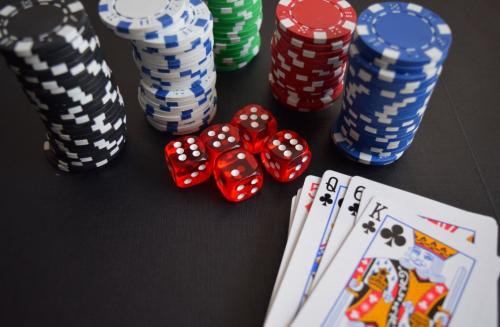
Games of chance are games that depend more on luck than skill. They are mostly games that people bet on. Any game of chance that involves money is a gamble.
Games of chance contrast with games of skill. The result of a tennis match, for example, depends on the skill of the players. Therefore, it is a game of skill. However, if we blindfold the players, the result of the game will depend more on luck. That game of skill is now more of a game of chance.
Put simply: “A game of chance is a game whose outcome depends on luck, i.e., an element of chance, rather than skill. Skill may influence the outcome, but less than in a game of skill.”
A casino bonus, typically available at online casinos, gives players a better chance to win by increasing their bankroll. However, the house still has the edge. This is because players generally can’t withdraw any winnings from a casino bonus straight away. Instead, the winnings must be wagered a certain number of times.
In most cases, people bet on a game of chance using money. However, if the gambler has run out of cash, his or her stake could be any possession.
Games of chance – Government revenue
All governments that allow gambling earn sizable incomes from the gaming or gambling sector.
According to the UK’s Gambling Commission, the Government received a total gross gambling yield of £14.4 billion ($19 billion) in 2018. That was a 4.5% increase on the previous year.
The Gambling Commission is an executive non-departmental body of the UK Government. It is responsible for regulating gambling in the UK. It also supervises gaming law.
The State Government of Nevada, USA, received gambling revenues totaling $26.2 billion in 2017. Casinos’ contributions amounted to $852.2 million, i.e., 7.7% of the total, according to IGaming Business.
Games of chance – types
There are dozens of different types of games of chance. The most popular online casino games are video poker, roulette, craps, blackjack, and sports betting. Baccarat is also popular.
In the US, UK, Canada, Ireland, and Australia, bingo is popular among older adults. Most older adults still prefer to visit real-life bingo halls. However, online bingo activity is growing at the expense of real-life bingo.
The UK’s Gambling Commission divides gambling activities into the following sectors:
- Casinos – these exist online as well as in physical buildings that people enter (real life).
- Arcades – which may be exclusively for over 18s or families.
- Lotteries – there are various types, such as raffles, tombolas, sweepstakes, etc.
- Bingo – which may be in a bingo hall or online.
- Betting – which may occur online, at bookmakers (betting shop), or at an event. People gathering at a racecourse to watch horse racing, for example, is an event.
- Gaming machines – such as fruit machines or fixed odds betting terminals.
Investing in the stock market
If I buy shares in the stock market, am I participating in a game of chance? I can carry out research and invest only in blue-chip companies. In other words, invest in well-established companies with a good track record. Therefore, good skills can improve your outcome.
However, nobody knows whether there will be a local or global financial crisis next week or next month. The blue-chip company may suddenly go downhill if a new product enters the market or legislation changes. In other words, there is also an element of chance.
Some people insist that trading in a stock market or purchasing any financial instruments are games of chance. Others argue that as skilled people can earn a good living, it is a game of skill. However, some people earn a good income by betting on ‘the horses’ (horse racing). Betting on the horses is definitely gambling.
Games of chance – part of human nature?
If history is anything to go by, gambling is part of human nature. We have been gambling in one form or another since the Stone Age. In other words, for tens of thousands of years.
Archaeologists say there are six-sided dice dating back to c. 3000 BC in Mesopotamia. Mesopotamia is a historical region that corresponds today to most of Iran. It also included parts of modern Saudi Arabia, Turkey, Syria, and Kuwait.
At about 1000 BC, there were gambling houses all over China. At that time, Chinese citizens would bet on all types of events, including animal fights.
Poker, among the most famous games of chance, originated in the US in the early 19th century. It was probably a direct derivative of As-Nas, a Persian game. However, some experts disagree.
